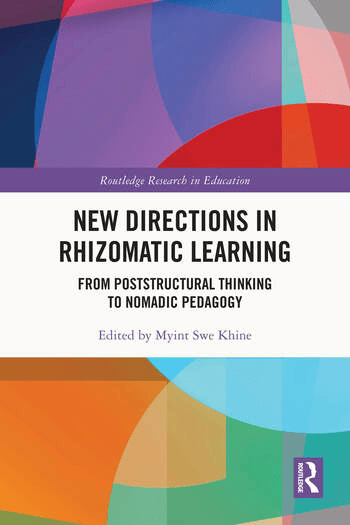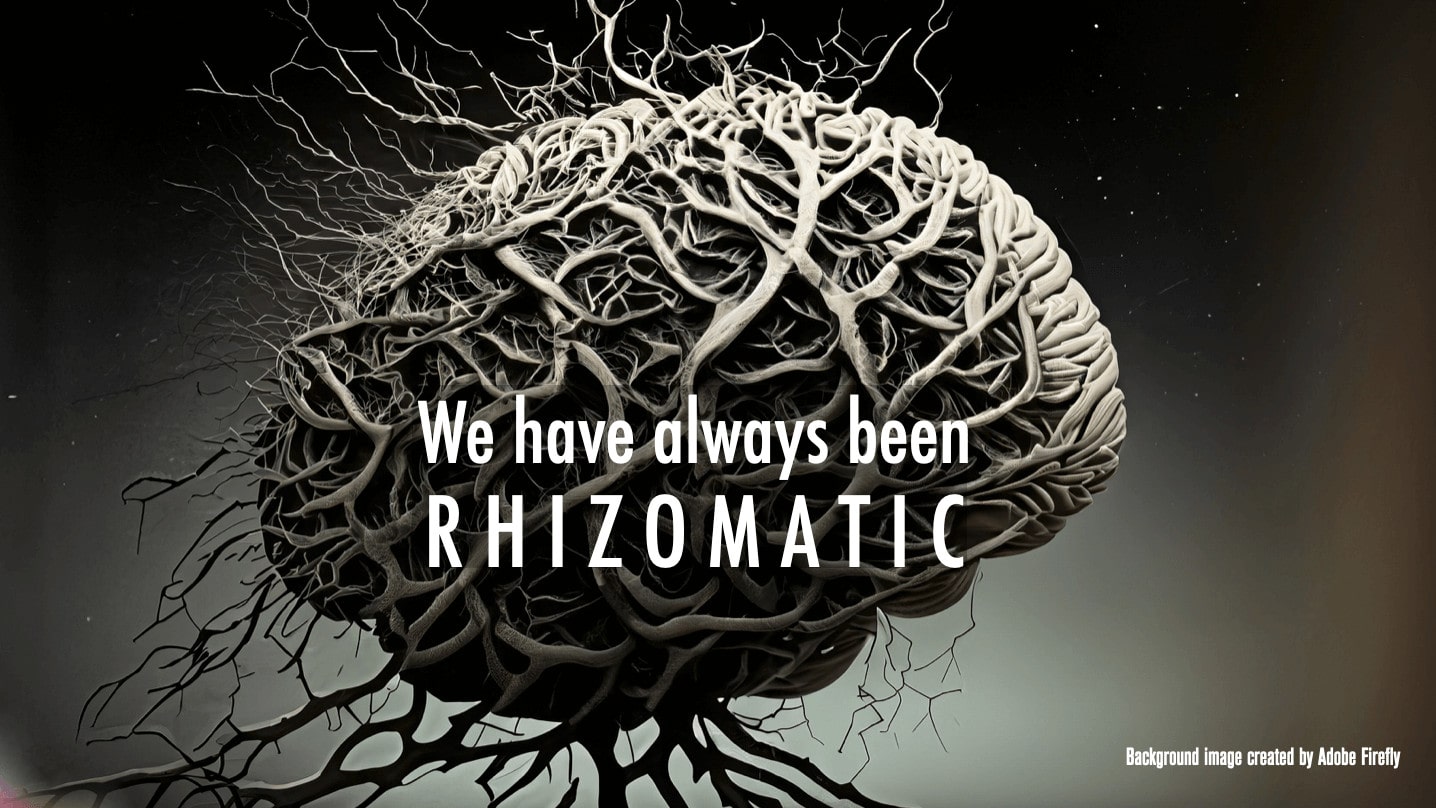Danah Henriksen and I were recently asked to write a foreword for a book titled New Directions in Rhizomatic Learning: From Poststructural Thinking to Nomadic Pedagogy edited by Myint Swe Khine.
This was a fun foreword to write and allowed us to explore a range of ideas about the nature of knowledge and its embodiment in particular technologies. A few key quotes:
A ‘rhizome’ refers to a deeply interconnected branching network. Within the field of biology, the term denotes plant anatomy—a creeping rootstalk, or a horizontal underground plant stem that can produce the shoot and root systems of a new plant (Britannica, n.d.)…
The rhizome has no beginning or end and no point of origin. Just as knowledge has no singular beginning, end, or absolute center point or origin….
At heart, rhizomatic texts point to a paradigm shift from conceptual schemes based on “center, margin, hierarchy, and linearity,” toward acknowledging “multilinearity, nodes, links and networks.”…
The metaphor of the rhizome has always been implicitly present in the nature of knowledge as an unending network of connections and interconnections. It is a powerful metaphor, and new tools and digital technologies have affordances that allow rapid, networked, and often sprawling uninhibited communication that embodies the metaphor more powerfully than many pre-digital tools could. This has itself led to global cultural shifts in societies, and new perceptions of knowledge.

Complete citation and link to a pre-press submitted version given below
Henriksen, D., & Mishra, P. (2023). We have always been Rhizomatic (Foreword) in M. S. Khine (Ed). New Directions in Rhizomatic Learning: From Poststructural Thinking to Nomadic Pedagogy. Routledge.




0 Comments